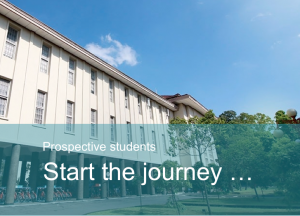Learning Method
The learning process in the D-CS Programme is organized through several activities: lectures, writing dissertation proposal, research, seminars on research progress, writing scientific articles for publication and writing dissertations. The shortest length of study for the Doctoral Program is 6 (six) semesters with a maximum of 14 (fourteen) semesters (Ministry of Education and Culture’s Regulation No.3 of 2020) for both regular and by research tracks. The length of study is calculated starting from the first day of becoming a doctoral student until yudisium.
In accordance with the Rector’s Regulation No.14 of 2020 concerning the basic framework for the UGM Curriculum, learning methods in the D-CS Programme are centered on student, i.e., student-centered learning (SCL), and most of the courses are implemented using the case-based learning (CBL) method, problem-based learning (PbBL), project-based learning (PjBL), or a combination of these methods. Meanwhile, students who need basic knowledge that is not obtained in compulsory or elective courses can take part in classes held in the Bachelor or Masters programmes using the sit-in rules set by the Department.
The number of course credits that must be taken by a student is determined by the promotor team in one of the programme meetings that will take place before the beginning of each semester. Also, at the same meeting, new students will be paired with their promotors. This meeting will be attended by all the programme’s lecturers. Students must take courses with a minimum credit load of 12 credits in the first year for the regular track, and a minimum of 9 credits in the first semester for the by-research track. Lectures can be held in a classical or independent form, depending on the number of students taking the course. In addition, a student must also take a dissertation compulsory course with a credit weight of 34 credits for the regular track, and 40 credits for the by-research track.
To ensure the quality of learning outcomes and to guarantee timely completion of student studies, the programme organizes periodic evaluations of student study and research progress known as Monitoring and Evaluation (Monev) every 4 (four) months in the form of group seminars with two reviewers, one of whom is promotor team members. In this activity, students present the results or progress of their research, and the reviewers confirm and ask questions, and will then provide notes, suggestions, and input for future research activities. Then, as one of the graduation requirements, students must have at least one international publication for the regular track, and at least two international publications for the by-research.
To help students carry out research and write publications, the programme asks the promoter team to provide guidance at least once every two weeks, so that consulting and mentoring activities can be carried out in a scheduled and regular manner. Thus, the progress of the student’s research can be better monitored, and when students encounter problems, they can be immediately detected and solutions can be promptly sought. In addition, the programme with the help of the HIMPADIKOM student association also organizes activities in the form of scientific paper writing training for publication at least 2 (two) times per academic year.

